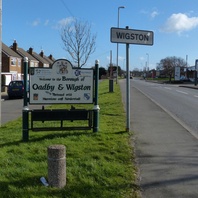
Viking Names
Wigston Magna
Wigston Magna, in the Guthlaxton Hundred of Leicestershire, is an Anglo-Scandinavian hybrid from the Old Norse male personal name Víkingr and the Old English element tun ‘an enclosure; a farmstead; a village; an estate’. Alternatively the first element might be the Old Norse appellative víkingr ‘a viking’, the probably source of the personal name. It has also been suggested that the first element may be the Old English male personal name Wicing or Old English wicing ‘a pirate, a viking’; however, these suggestions are doubtful because the length of the initial vowels of these elements are uncertain, therefore, the Old Norse male personal name is generally accepted as the first element. The Medieval Latin affix Magna ‘big, great’ arose when there was confusion between forms from Wigston Magna and Wigston Parva, which have different etymologies and development, around the the sixteenth century. Some forms of the name also have the affix with two steples because Wigston Magna possessed two medieval churches. Wigston Magna is also known as Wigston and is a joint parish with Oadby.
Read More
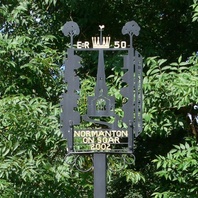
Viking Names
Normanton on Soar
Normanton on Soar, in the Rushcliffe Wapentake of Nottinghamshire, takes its name from the Old English ethnonym Norðman ‘Northman, Norwegian’ and the Old English element tun ‘farm, settlement’. There are several places of this name, predominantly in the East Midlands: five in Nottinghamshire, one each in Derbyshire, Leicestershire, Lincolnshire and Rutland, and one in the West Riding of Yorkshire. The affix Soar refers to the location of this Normanton on the River Soar. Traditionally, the place-name has been interpreted as referring to a settlement of Norwegians (in an area where most of the Scandinavian settlers were Danes). However, the exact implications of such a name are not yet fully understood and are the subject of ongoing work by Dr Jayne Carroll of the Institute for Name-Studies, University of Nottingham.
Read More

Viking Names
Gamal
Gamall originally a byname meaning ‘the old one’, is fairly frequent in Norway from the eleventh century onwards and is found in some Norwegian place-names. The name is also found in Sweden and Denmark. It is one of the most common Old Norse male personal names found in the Danelaw. Gamall is also the first element in Gamston, Nottinghamshire.
Read More
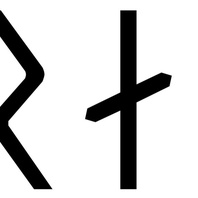
Viking Names
Grein
Grein is an original byname of which the interpretation is not certain. It is derived from Old Norse grein ‘branch’ or ‘reason’ or ‘distinction’ or ‘discernment’. There are some few late instances of the name recorded in West Scandinavia. It is also the first element in Grainsby, Lincolnshire.
Read More
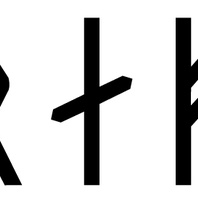
Viking Names
Hrafn
The Old Norse male name Hrafn is found throughout Scandinavia, but is particularly common in Iceland. It means ‘raven’ and belongs to a common group of male names which refer to animals, such as Arn ‘eagle’, Björn ‘bear’, Ulfr ‘wolf’. It is frequently compounded in personal names with other elements, as seen in the Old Norse personal name Hrafnkell, and others. When found in place-names, it is possible that it represents either the Old Norse common noun hrafn ‘raven’ or the Old English common noun hræfn ‘raven’, rather than a personal name. It may also represent a possible Old English personal name Hræfn. Hrafn is seen in the first element of the minor place name Ranskill in the Bassetlaw Wapentake of Nottinghamshire.
Read More
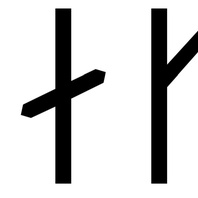
Viking Names
Haki
Haki was originally an Old Norse byname probably identical with Old Swedish and Modern Icelandic haki ‘chin’ possibly with some other meaning developed from this. Some instances of Haki as a personal name and a byname are recorded in Norway. It also appears in Denmark in South Jutland from the end of the 15th century, but it is found early in place-names throughout the country. It is only recorded as a personal name in Swedish runic inscriptions. The name also appears frequently in legendary history. Haki is believed to be the first element in the place-name Haxey, Lincolnshire. The name is also recorded in several medieval sources from Lincolnshire and Yorkshire.
Read More

Viking Names
Legg
An original byname, Leggr ‘leg-bone, leg’ appears first in Norway as a byname and is borne by one of the original settlers in Iceland, but is found as a personal name in West Scandinavia. Leggr is the first element of the place name Legsby, Lincolnshire.
Read More
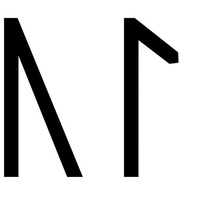
Viking Names
Kol
Kolr is a common male personal name in Norway and Iceland. It is probably related to the Old Norse noun kol ‘coal’ and is attested as the first element in the hybrid name Colston (Bassett) and (Car) Colston in Nottinghamshire. It is also attested as the first element in other Old Norse names, such as Kolbeinn.
Read More
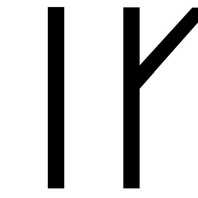
Viking Names
Bekki
The Old Norse postulated male name Bekki is possibly an Anglo-Scandinavian formation originally from Old Norse bekkr ‘brook’. However, it could also be related to Frisian Becke or Continental Germanic Becco. Another possible derivation is from Old English becca ‘mattock’. Bekki is believed to be the first element in the place-name Bigby, Lincolnshire.
Read More
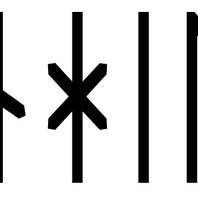
Viking Names
Gunnhild
Gunnhildr is a very common female name throughout the Viking world. In England, the name has a particularly wide geographical distribution that extends beyond the Danelaw and beyond the Viking Age. Its popularity was most likely influenced by its use in the Danish royal family in the eleventh century, when it was borne by an aunt, a daughter and a niece of King Cnut. The name is also the first element of the place-name Gunthorpe, Nottinghamshire.
Read More
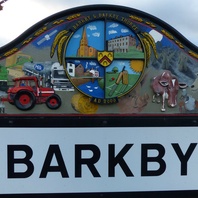
Viking Names
Barkby
Barkby, in the East Goscote Hundred of Leicestershire, is a Scandinavian compound from the Old Norse male personal name Bark, from either Barki (genitive singular Barka), or Barkr, Bǫrkr (genitive singular Barkar) combined with Old Norse by ‘a farmstead, a village’. A late form of the name, Mikeberkby, is prefixed by the Old Norse element mikill ‘great’ to distinguish it from its neighbouring daughter settlement Barkby Thorpe.
